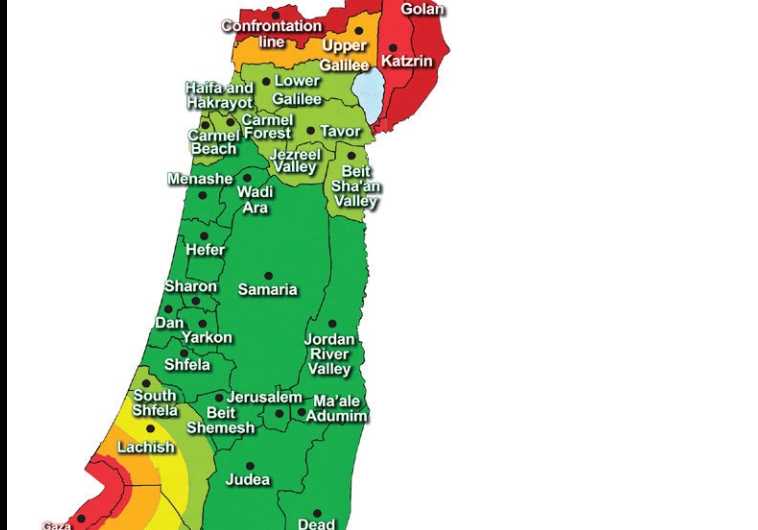Home Front Command releases updated rocket alert map
The updated map makes it easier for the public to understand rocket alert zones by creating less confusing geographical divisions.
 The updated rocket alert map (photo credit: IDF SPOKESPERSON'S UNIT)
The updated rocket alert map (photo credit: IDF SPOKESPERSON'S UNIT)